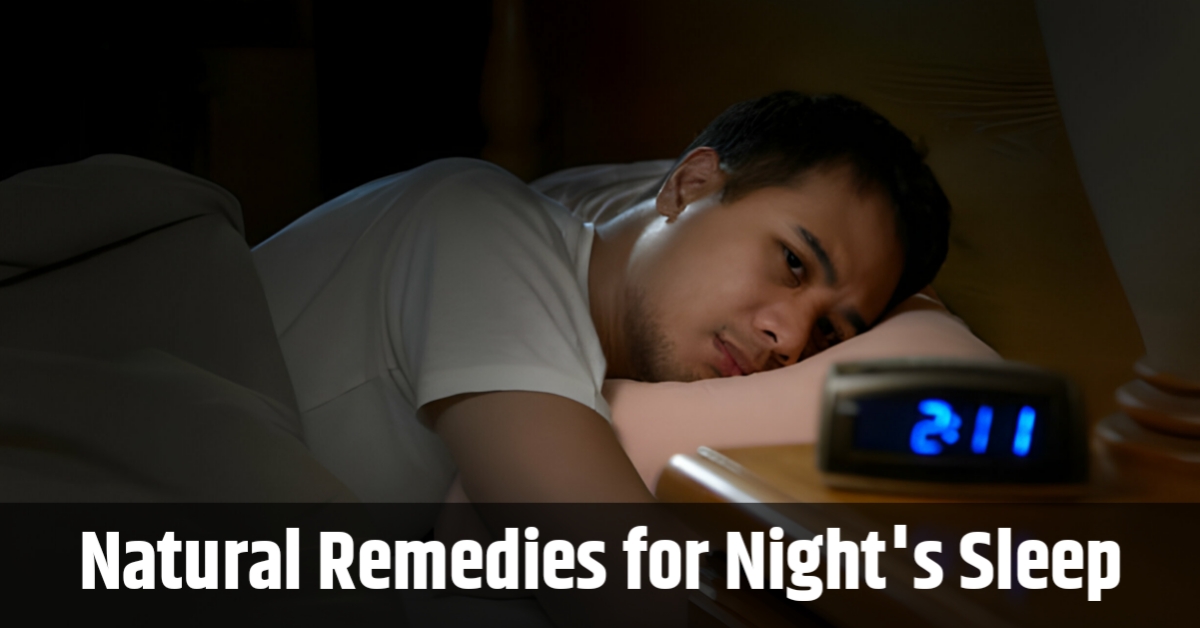Tossing and turning all night? Millions of people around the world struggle with occasional or chronic insomnia, leaving them feeling tired, irritable, and unable to function at their best. If you’re one of them, don’t despair! There are many natural remedies you can try to promote better sleep and wake up feeling refreshed.
Understanding Sleep
Sleep is crucial for our physical and mental health. It allows our bodies to repair and recharge, and our brains to consolidate memories and process information. Most adults need around 7-8 hours of quality sleep each night.
Causes of Sleeplessness
Several factors can disrupt sleep, including:
- Stress and anxiety: Worrying about work, finances, or relationships can keep your mind racing and make it difficult to fall asleep.
- Unhealthy habits: Excessive caffeine intake, screen time before bed, and irregular sleep schedules can disrupt your body’s natural sleep-wake cycle.
- Medical conditions: Certain medical conditions like chronic pain, sleep apnea, and hormonal changes can affect sleep quality.
- Environmental factors: Noise, light pollution, and an uncomfortable sleeping environment can interrupt sleep.
Natural Sleep Remedies
Before resorting to medication, consider these natural remedies to improve your sleep hygiene and promote restful nights:
- Develop a Relaxing Bedtime Routine: Establish a consistent sleep schedule, going to bed and waking up at roughly the same time each day, even on weekends. Create a relaxing bedtime routine that signals to your body it’s time to wind down. This could include taking a warm bath, reading a book, or practicing light stretches.
- Create a Sleep-Conducive Environment: Make sure your bedroom is dark, quiet, and cool. Invest in blackout curtains, earplugs if necessary, and maintain a comfortable room temperature.
- Power Down Before Bed: Avoid stimulating activities like watching TV, working on your computer, or using your phone for at least an hour before bedtime. The blue light emitted from electronic devices can suppress melatonin production, a hormone that regulates sleep.
- Relaxation Techniques: Practice relaxation techniques like deep breathing exercises, progressive muscle relaxation, or meditation to calm your mind and prepare for sleep. Mindfulness exercises can help you focus on the present moment and reduce anxious thoughts that keep you awake.
- Regular Exercise: Engaging in regular physical activity can improve sleep quality. Exercise helps release endorphins, which have mood-boosting effects, and can tire your body in a healthy way. However, avoid strenuous exercise close to bedtime, as it can be stimulating.
- Limit Caffeine and Alcohol: While caffeine can give you a temporary energy boost, it can also disrupt your sleep cycle. Limit caffeine intake, especially in the afternoon and evening. Similarly, while alcohol might make you drowsy initially, it can disrupt sleep quality later in the night.
- Natural Sleep Aids: Certain natural supplements like melatonin, chamomile tea, and valerian root may promote relaxation and improve sleep quality. It’s important to consult with your doctor before starting any supplements, especially if you’re taking medications.
- Cognitive Behavioral Therapy (CBT) for Insomnia: CBT is a form of therapy that can help identify and change negative thoughts and behaviors that contribute to insomnia. A therapist can teach you relaxation techniques and sleep hygiene practices to improve sleep quality.
Additional Tips
- Expose yourself to sunlight during the day: Sunlight helps regulate your body’s natural sleep-wake cycle. Aim for at least 30 minutes of sunlight exposure each day.
- Avoid heavy meals close to bedtime: A large or spicy meal can disrupt digestion and make it difficult to sleep. Opt for a light, healthy dinner a few hours before bedtime.
- Create a comfortable sleep environment: Invest in a good quality mattress and pillows that provide proper support. Ensure your bedsheets are comfortable and breathable.
Remember
These tips may not work for everyone. If you continue to experience persistent sleep problems, consult with your doctor to rule out any underlying medical conditions and discuss treatment options. With a consistent approach and a few natural sleep remedies, you can improve your sleep hygiene and drift off to a peaceful night’s rest. Sweet dreams!

